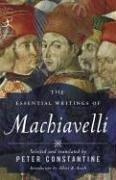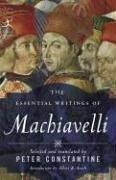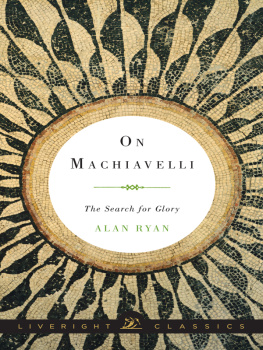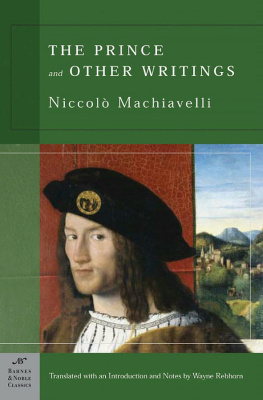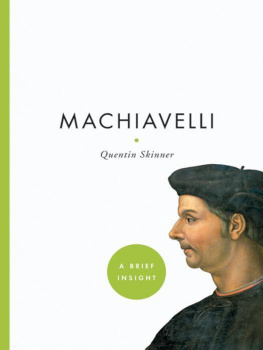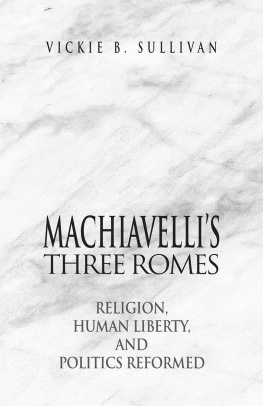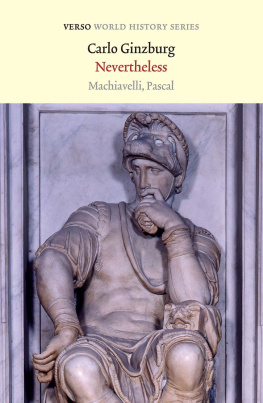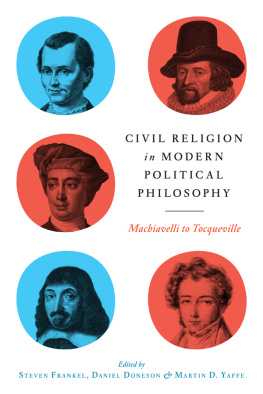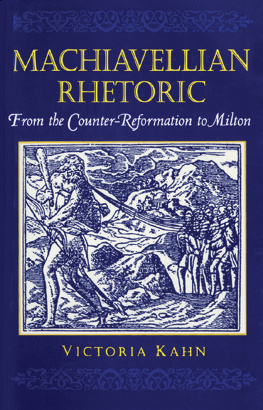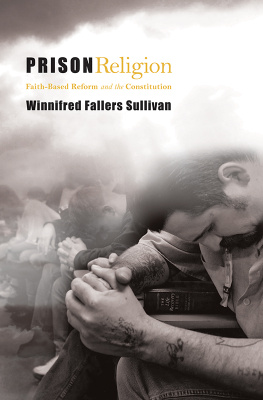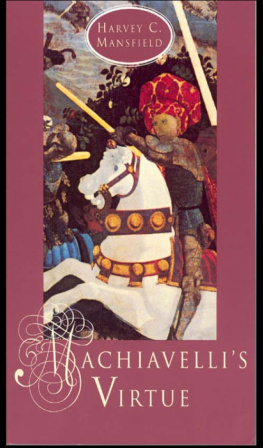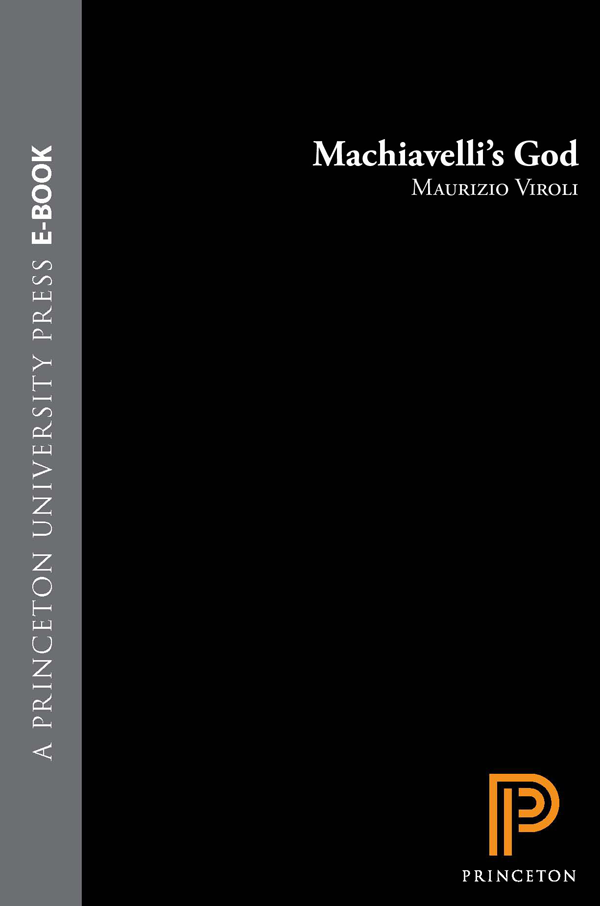MACHIAVELLIS GOD

MAURIZIO VIROLI
Translated by ANTONY SHUGAAR
PRINCETON UNIVERSITY PRESS
Princeton and Oxford
Copyright 2010 by Princeton University Press
Published by Princeton University Press, 41 William Street,
Princeton, New Jersey 08540
In the United Kingdom: Princeton University Press, 6 Oxford Street,
Woodstock, Oxfordshire 0X20 ITW
press.princeton.edu
All Rights Reserved
Library of Congress Cataloging-in-Publication Data
Viroli, Maurizio.
[Dio di Machiavelli e il problema morale dellItalia. English]
Machiavellis god / Maurizio Viroli; translated by Antony Shugaar.
p. cm.
Includes bibliographical references and index.
ISBN 978-0-691-12414-8 (hardcover: alk, paper) I. Machiavelli, Niccol,
14691527, 2, Political ethicsItaly. 3. Religion and politics. I. Shugaar,
Antony. II. Title.
JC143.M4V5213 2010
172dc22 2010001767
British Library Cataloging-in-Publication Data is available
The translation of this work has been funded by
S EGRETARIATO E UROPEO PER LE P UBBLICAZIONI S CIENTIFICHE

Via Val dAposa 7 40123 Bologna Italy
This book has been composed in Adobe Jenson Pro Light
Printed on acid-free paper.
Printed in the United States of America
1 3 5 7 9 10 8 6 4 2
For Ezra Suleiman

CONTENTS

INTRODUCTION
CHAPTER ONE

HIS GOD
CHAPTER TWO

THE POWER OF WORDS
CHAPTER THREE

THE REPUBLIC AND ITS RELIGION
CHAPTER FOUR

MACHIAVELLI AND THE RELIGIOUS AND MORAL REFORMATION OF ITALY

INDEX

FOREWORD
The idea of seeking out Machiavellis God came to me as I read the writings of the political philosophers, the historians, and the poets who have reflected on the weakness of the civil and moral conscience of the Italians. Nearly all of them pointed to a bad religious education as the chief culprit and expressed their appreciation of Machiavelli as a supporter of a different religion, a full-fledged religion of liberty, capable of assisting in the rebirth of a republican fatherland.
I therefore set out to identify Machiavellis God, convinced that it is in that God that lies the secret, and the cure, for Italys moral problem. I am not entirely sure that I have found that God. I still believe, however, that Machiavelli had a God, and that around this God of his he developed a religion of liberty that played an important historical role in Italian political culture.
The excavation that I undertook around Machiavellis God allowed me to bring to light the historic and ideal bond that links the civil religion that flourished in particular in America and the republican Christianity that was born in Florence and in the other free republics of Italy. To the best of my knowledge this theme has not yet been studied with the attention that it deserves, and it may be a direction for new studies.
The history of Machiavellis God also invites us to think in new terms about the relationship between Christian religion and republican political thought, a theme that has been entirelyor almost entirelyoverlooked, despite the fact that it is clearly evident that republican liberty was born and has prospered always with the aid of a particular interpretation of Christianity. Can that liberty survive, one is naturally prompted to wonder, without religion?
I must thank, and it is an agreeable duty, the friends who read the manuscriptin full or in partand who helped me with their criticisms and suggestions; in particular, Quentin Skinner, Emanuele Cutinelli-Rndina, and Corrado Vivanti. I would also like to thank the Italian Biblioteca del Senato, and Doctor Sandro Bulgarelli, the Biblioteca Casanatense of Rome, the Biblioteca Aurelio Saffi of Forl, and the Biblioteca Malatestiana of Cesena, which allowed me do my research in the best conditions I could have asked for. This book came into existence thanks to the generous and unstinting support of Princeton University; to that school I extend my sincere gratitude. I also wish to sincerely thank Ian Malcolm of Princeton University Press for his support to make this English edition possible and to Antony Shugaar for his splendid translation.
I ideally dedicate this book to Carlo Azeglio Ciampi, emeritus president of the Italian Republic, advocate for the values of a civil Italy

PREFACE
Since this book appeared in Italian in 2005, a number of studies have been published that discuss the main interpretive points that I have proposed. I believe I must examine at least the most challenging of them. As readers will notice, I claim in this work that Machiavelli not only asserted that republican liberty needs a religion that instills and supports devotion to the common good but also that Christian religion properly interpreted is apt to serve such a civic task. Against these views, Gennaro Sasso, without explicitly mentioning my book, has raised a set of powerful objections. Focusing his attention on a well-known passage from Discourses on the First Ten Books of Titus Livy, I 12, 1014, where Machiavelli writes that if such religion had been maintained by the princes of the Christian republic as was ordered by its giver the Christian states and republics would be more united, much happier than they are, Sasso emphasizes that this sentence contains a subversive political and historical thesis that Machiavelli expressed in the language of ambiguity. And the subversive meaning would be that Christ was the authentic and genuine founder of a religion that, even without the negative distortions produced by his inadequate and corrupt successors, contained in itself the worst possible political vice (il peggior vizio politico). If one carefully reads the passage under examination, Sasso remarks, one cannot fail to perceive that Machiavellis recognition of Christs purity and religiosity revolves around the assertion that precisely Christs purity and religiosity concealed the roots of the un-happiness of Christian republics. From this assumption Sasso also draws the conclusion that we should not take seriously Machiavellis equally well-known statement, again in the Discourses on Livy, that if men considered how [our religion] permits us the exaltation and defense of the fatherland, they would see that it wishes us to love and honor it and to prepare ourselves to be such that we can defend it (II 2, 36). What Machiavelli really meant to teach us was that the Christian sect was radically and irredeemably a negation of politics. Of all the interpreters, regardless of their purposes, Sasso concludes, the Jesuits were surely right in denouncing Machiavelli as the enemy of Christian religion, just as Francis Bacon was right when he wrote that one of the doctors of Italy, Nicholas Machiavel, had the confidence to put in writing, almost in plain terms, that the Christian faith had given up good men in prey to these that are tyrannical and unjust.


